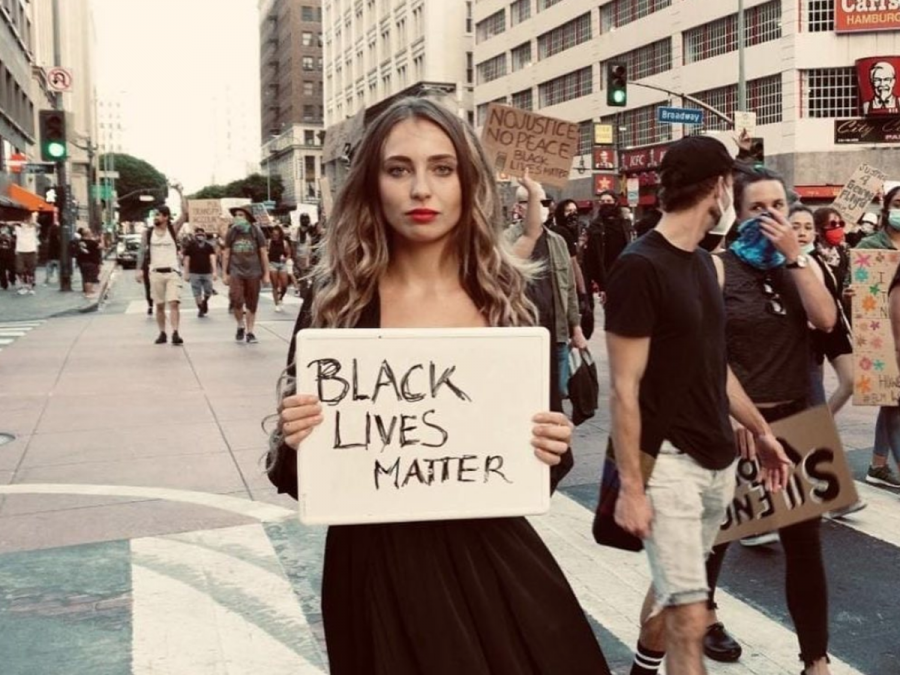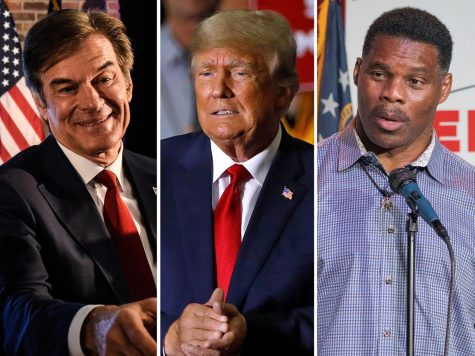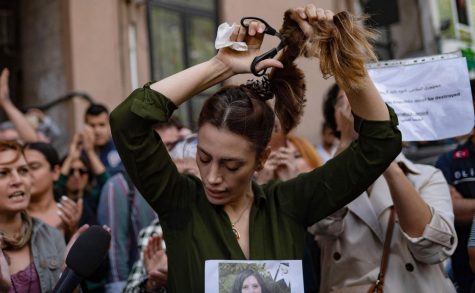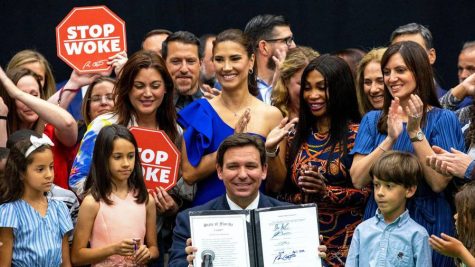Performative activism exploits social justice movements
Social media influencer Kris Schatzel has come under criticism for seemingly using the Black Lives Matter movement to further her celebrity.
As Joe Biden took the oath of office to become the 46th president of the United States, people of color (POC) across the country rejoiced but with cautious optimism regarding the progress they are expecting to come. The tumultuous summer left open many racial wounds across the country and left POC wary of performative behavior that became more harmful than helpful in regards to racial equality.
Performative activism is when celebrities and content creators participate in progressive movements for lucrative purposes or to protect their own reputations. Though many of these celebrities may actually care about POC , they tend to only express it when it’s the social media hot topic of the day. If it’s not the highest trending item in their feed or it is something that could jeopardize their following, it’s not as important to them.
Even though there was overwhelming support for a long period of time, many TikTok stars who were leaders in speaking up for black people have long since removed petitions to links from their social media bios and are no longer providing new information for the issues that they believed in so strongly. The most effort that many show now is having a Black Lives Matter (BLM) profile picture, and that is most likely because they are too lazy to change it.
Performative activism does not only occur with celebrities, but with the average young white person as well. In June, millions of people on their social media platform posted a black square and captioned it “#blackouttuesday” in order to recognize the deaths of black people as a result of police brutality. While the sentiment was appreciated, the meaning was warped because many people don’t even know why they were doing.
Even worse, teens would post multiple squares in order to maintain the aesthetic of their page, or remove the square all together after a couple of hours. For white teens who don’t struggle with marginalization, a black square is just a small task for them to wipe away their white guilt.
“I think it’s inevitable for them to be treated as trends especially by people who don’t experience the social disparities they’re posting about,” Olympic Heights senior Mycah Wells commented.
The fact that BLM can become an aesthetic or going to a protest can become a photo-op is also leading many POC to be wary of young white people contributing to the cause. Again, this doesn’t mean that everyone who behaves this way is a racist or doesn’t truly care, but being an ally to the movement means actively practicing what you’re preaching. Hence, the term activism.











